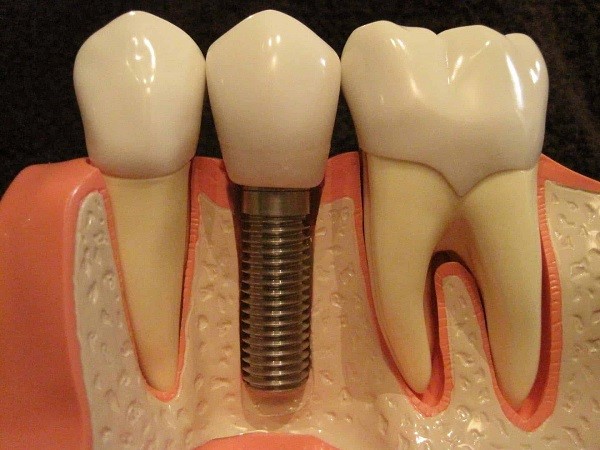Oral surgeon Theodore J. Grellner discusses the side effects that patients are likely to experience while recovering from dental implant surgery.
When a tooth is lost or extracted, there is no question that it needs to be replaced. Missing teeth jeopardize the health and security of surrounding teeth and lead to deterioration of the jawbone. However, with all the restorative dentistry options available, it can be difficult for patients to determine which is the best way to treat missing teeth. Dental implants are the most advanced treatment for missing teeth, and the only one that addresses the loss of the entire tooth. For these reasons and more, Dr. Theodore J. Grellner urges patients to consider dental implant treatment for tooth loss. He discusses dental implant treatment with his patients in detail so they are well prepared for the procedure and recovery. Here, we discuss the dental implant side effects our Tampa, FL patients are likely to experience following surgery.
- The Dental Implant Difference One of the primary differences between dental implants and alternate treatments for missing teeth is that implants are actually surgically implanted into the jaw. During an initial surgical procedure, the implants are placed into the jaw at the treatment site. Once placed, we wait several weeks for the jaw to recover, allowing the implants (which are actually tiny titanium screws) to fuse with the jawbone. When this recovery is complete, abutments will be attached to the implants. These abutments connect to the dental implants and protrude from the gum line so they can be attached to restorations, such as crowns, dental bridges, or dentures. This surgical procedure and the fusion that takes place is what provides patients with the superior level of security, durability, and comfort.
- Dental Implants Side Effects Because dental implants do require oral surgery, patients should expect to experience some side effects following treatment. The majority of these side effects develop during recovery from the initial surgery in which the implants are placed. Below are some of the most common side effects of dental implant treatment:
- Bleeding: There is likely to be some bleeding around the treatment site for at least the first 48 hours after surgery. This bleeding should be relatively minor. To control the bleeding, patients can bite down of gauze.
- Pain: During dental implant surgery, we use anesthetics to ensure patient comfort. However, once this wears off, patients will likely experience some degree of discomfort. Dr. Grellner can prescribe a pain medication to be used as directed to control discomfort.
- Swelling: Swelling is the most common side effect of any surgery. Following dental implant surgery, patients will likely notice swelling around the gums and, possibly, the face. Cold compresses or ice packs can be applied to manage this swelling.
- Bruising: Bruising is another possible side effect of dental implant surgery. Most bruising will develop around the gums near the treatment site, but some patients may also notice visible bruising on the cheeks.
Every patient is different so each recovery is unique. Patients may experience some or all of the abovementioned side effects after dental implant treatment. It is important to remember that these side effects are normal and will subside shortly – usually within a week. If these side effects do not dissipate on their own, or if any unusual side effects develop, they should be reported to Dr. Grellner as soon as possible so he can rule out any complications.
Schedule an Appointment
Dental implants are the most natural replacement for missing teeth and provide the greatest degree of stability. If you would like to learn more about the dental implant procedure, schedule an appointment with Dr. Theodore J. Grellner at your earliest convenience.

